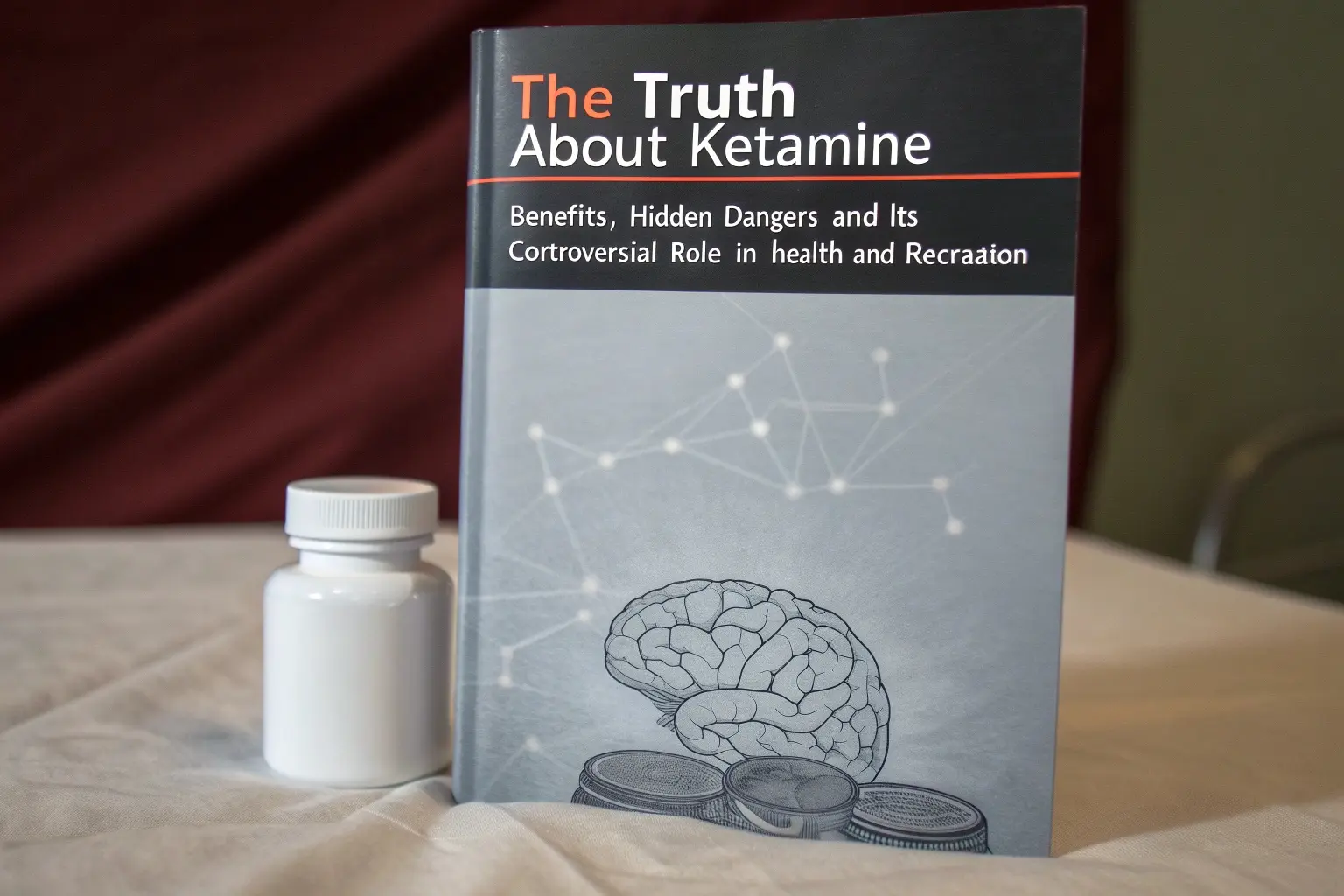The Truth About Supplements: Are They Safe or Just Full of Crap?
Fish oil has benefits, but it’s not without quirks—like fishy burps or, in rare cases, a higher bleeding risk at high doses. Enteric-coated capsules can help smooth the ride.

If you’ve walked down a supplement aisle in any grocery store, pharmacy, or health food store, you’ve probably seen the dazzling array of pills, powders, and liquids promising to boost your energy, improve your mood, or make your skin glow. Supplements are now a $50 billion industry in the United States, and they’re not just a trend — they’re here to stay. Dietary supplements have become a staple for many people looking to fill nutritional gaps or enhance their health.
But with all the buzz, the flashy marketing, and the endless claims, the question remains: Are these supplements really effective, or are they full of crap? Are they safe? What’s the real value of popping a pill, and how can you know which ones are worth your time and money?
As someone who’s worked in health and wellness for years, I’ve seen the ups and downs of this booming industry, and it’s time to take a deep dive into what’s really going on behind the labels. It’s time for an honest conversation about the good, the bad, and the ugly of dietary supplements.
What Are Dietary Supplements And How Do They Work?
In simple terms, supplements are products designed to enhance the nutrients in your diet. They come in various forms — pills, powders, liquids, and gummies — and can include vitamins, minerals, herbs, amino acids, enzymes, and more. Supplements are meant to fill the gaps in your nutrition, providing things you might not be getting enough of from your regular food intake. Dietary supplements can be helpful when used correctly, but it’s important to understand what you’re taking and why.
In the U.S., dietary supplements are not regulated by the Food and Drug Administration (FDA) the same way that food or drugs are. This is where the trouble starts. Unlike medications, which have to undergo rigorous clinical testing and approval processes, supplements are allowed to be marketed without proven effectiveness or safety.
That’s right — the supplement industry is largely self-regulated. Manufacturers don’t have to provide evidence that their products are safe or effective before they hit the shelves. It’s a loophole that has led to a market flooded with both high-quality and, frankly, questionable products.
The $50 Billion Industry: Who’s Buying and Why?
According to the Council for Responsible Nutrition (CRN), approximately 77% of American adults take dietary supplements regularly, spending an estimated $50 billion annually on these products. It’s not just about weight loss pills or protein powders. People are buying everything from vitamin D to magnesium to herbal remedies in hopes of improving their health, wellness, and quality of life. Many people wonder, “Are supplements safe?” and it’s a question worth asking before adding anything new to your routine.
The appeal of supplements is undeniable. They promise a quick fix: an easy way to improve your health without having to make major lifestyle changes. With so many options on the market, it can be overwhelming to decide what to take, especially when everyone seems to have an opinion on what works and what doesn’t.
But here’s the truth: Supplements can be beneficial, but they’re not magic. They should never replace a balanced diet, and they certainly shouldn’t be used as a substitute for good sleep, exercise, or mental health care.

Which Supplements Are Scientifically Proven To Be Effective?
Not all supplements are created equal. The key to navigating this complex industry is understanding which supplements are backed by solid research and which ones are just well-marketed fluff. Here’s a rundown of the supplements that hold actual value:
- Vitamin D
o Why to Use: Around 42% of Americans are deficient in vitamin D, which is crucial for bone health, immune function, and even mood regulation. If you live in colder climates or don’t get much sun exposure, vitamin D supplements can be a game changer.
o How to Use: Take it with a meal that contains fat, as vitamin D is fat-soluble. The recommended daily intake varies, but 600-800 IU is typical. o Side Effects: Too much vitamin D can lead to toxicity, but this is rare if you stay within recommended limits. - Omega-3 Fatty Acids (Fish Oil)
o Why to Use: Omega-3s are vital for heart health, reducing inflammation, and supporting brain function. Research suggests they can reduce the risk of heart disease and may also improve mental health.
o How to Use: A typical dose is 1,000 mg per day.
o Side Effects: Fish oil can cause fishy burps, but this can be minimized with enteric-coated pills. In rare cases, high doses may increase the risk of bleeding.
- Probiotics
o Why to Use: Probiotics are live bacteria that support gut health and digestion. They can help balance gut bacteria, especially if you’ve been on antibiotics or suffer from digestive issues.
o How to Use: Take with or after a meal, but follow the specific instructions on your probiotic supplement, as different strains have different dosages.
o Side Effects: Mild digestive upset like bloating can occur, but this usually goes away after a few days of use. - Magnesium
o Why to Use: Magnesium is essential for muscle and nerve function, as well as for regulating blood sugar and maintaining bone health. Many people are magnesium-deficient, leading to cramps, fatigue, and even insomnia.
o How to Use: 300-400 mg of magnesium glycinate before bed can improve sleep quality.
o Side Effects: High doses of magnesium can cause diarrhea, so it’s best to start with a lower dose and adjust. - Multivitamins
o Why to Use: While a well-balanced diet should provide all the vitamins and minerals you need, a multivitamin can be useful for filling in small gaps, especially if your diet isn’t ideal.
o How to Use: Take with food to increase absorption.
o Side Effects: Overuse of certain vitamins, especially fat-soluble ones like vitamins A, D, E, and K, can be harmful.
What Are The Risks Of Unregulated Or Low-Quality Supplements?
Now, let’s talk about the not-so-good stuff. Supplements are big business, and not all of them live up to the promises made on the packaging. In fact, a significant portion of the market is dominated by low-quality products that don’t offer any real benefit. Some are just overpriced placebos.
Read About: The Truth About Gummy Superfoods: Candy or Cure?
One of the biggest issues with supplements is that many are not regulated, and some companies make claims that aren’t backed by science. According to a report by the U.S. Department of Health and Human Services, nearly 1 in 4supplements contain ingredients that aren’t listed on the label. That’s dangerous.
- Filler Ingredients: Some supplements contain excessive fillers, binders, or artificial additives that serve no purpose other than to bulk up the product. These can cause side effects in people with sensitivities and aren’t necessary for health.
- Contamination: In some cases, supplements are contaminated with heavy metals or other harmful substances. For example, a study by the Center for Science in the Public Interest found that some popular weight-loss pills contain harmful stimulants that could pose serious health risks.
Are Supplements for Everyone?
Not everyone needs supplements. For most people, a balanced, nutrient-rich diet is enough. But certain groups, such as older adults, pregnant women, vegetarians, or those with certain health conditions, may benefit from specific supplements. It’s also important to note that some people can experience side effects. If you’re taking multiple supplements or combining them with medications, you may run into interactions that could affect your health. Always talk to a healthcare professional before starting a supplement regimen.
When is the Right Time to Take Dietary Supplements?
The key to supplements is knowing when to use them and for what purpose. Supplements are best used when you’re deficient in a particular nutrient or when your diet doesn’t provide adequate amounts of essential vitamins and minerals.
For example:
- Vitamin D is important if you live in a region with limited sunlight.
- Probiotics can be helpful if you’ve recently taken antibiotics or have digestive issues.
- Omega-3s are great for heart and brain health, especially if you don’t eat fatty fish regularly.
Are Dietary Supplements Worth Your Money And Effort?
Supplements are not a magic bullet. They can be beneficial when used correctly, especially for addressing specific deficiencies, but they should never replace a healthy diet and lifestyle. Dietary supplements can support overall health, but only when chosen wisely and used as part of a balanced routine. As with anything, it’s important to approach supplements with caution and be wary of products that make bold claims without evidence to back them up.
With the supplement industry being largely unregulated, it’s essential to do your homework before you buy. Look for brands that are transparent about their ingredients and sourcing, and always consult with a healthcare professional if you’re unsure about what to take.
The bottom line: Supplements can hold value, but the key is knowing which ones are worth your money and which ones are just another marketing gimmick. Take a balanced approach to your health — supplements can help, but they should never be a substitute for good nutrition, exercise, and self-care.
Resources for Safe Supplement Use
Consumer Lab (reviews of supplement quality): https://www.consumerlab.com/
National Institutes of Health (NIH) Office of Dietary Supplements: https://ods.od.nih.gov/
U.S. Food and Drug Administration (FDA) – Dietary Supplements: https://www.fda.gov/food/dietary-supplements








